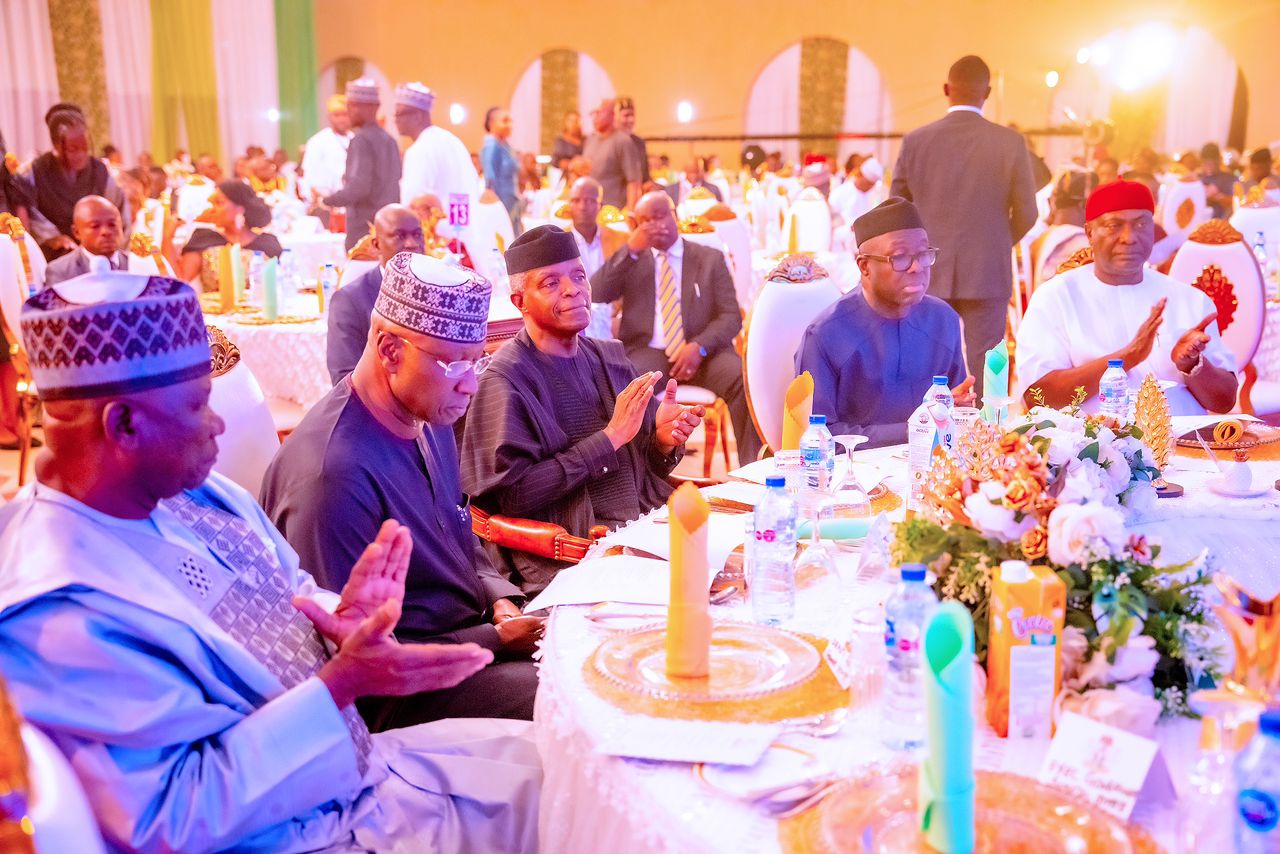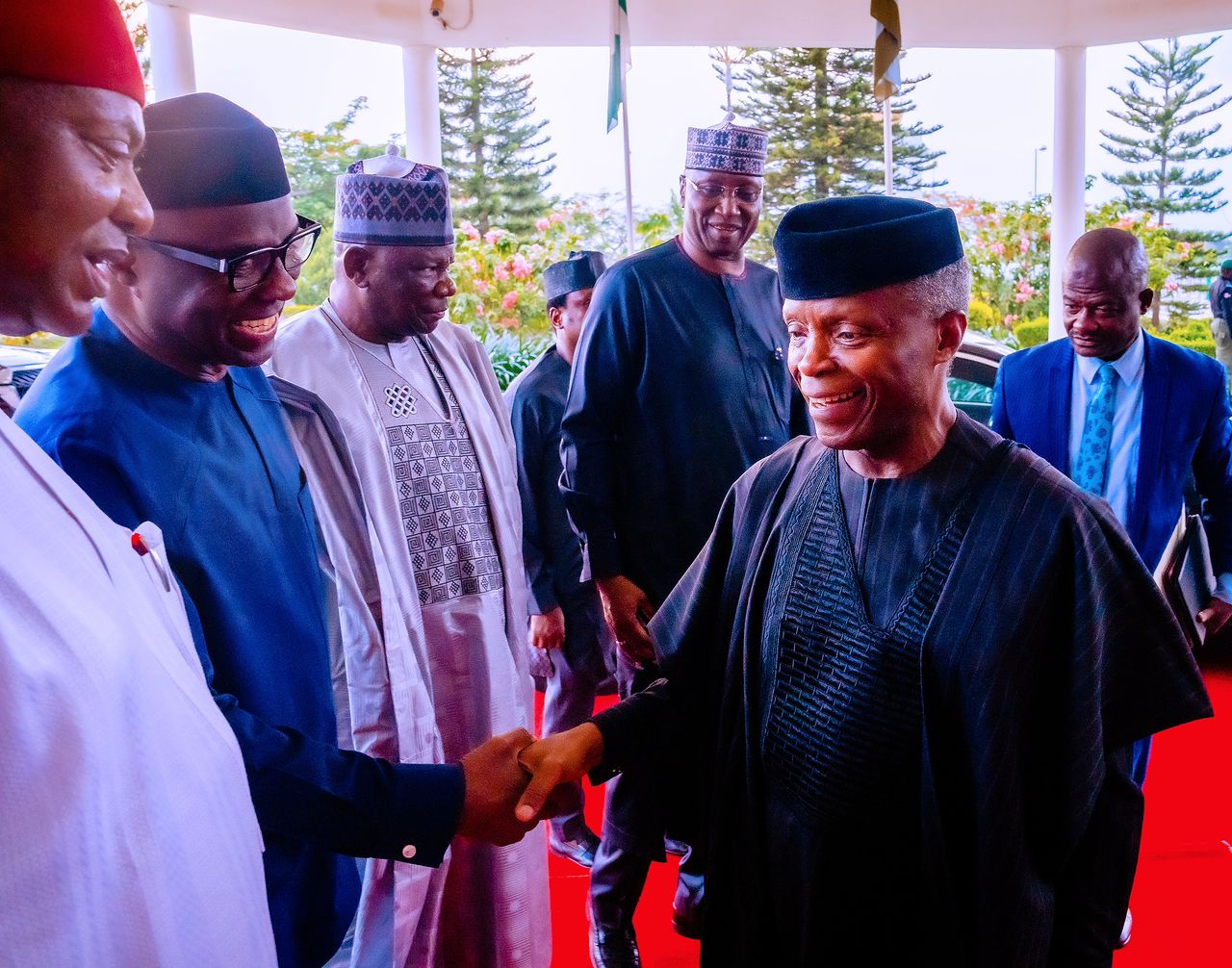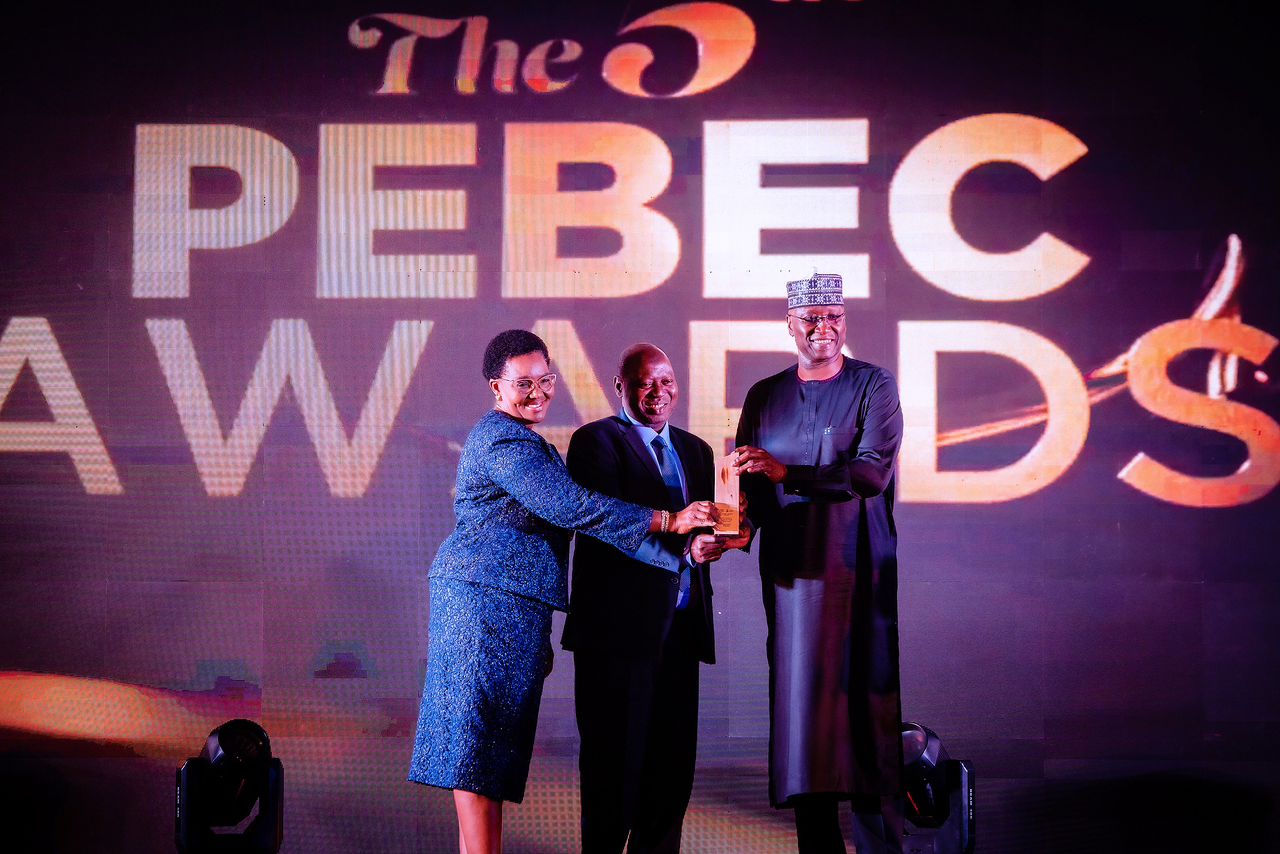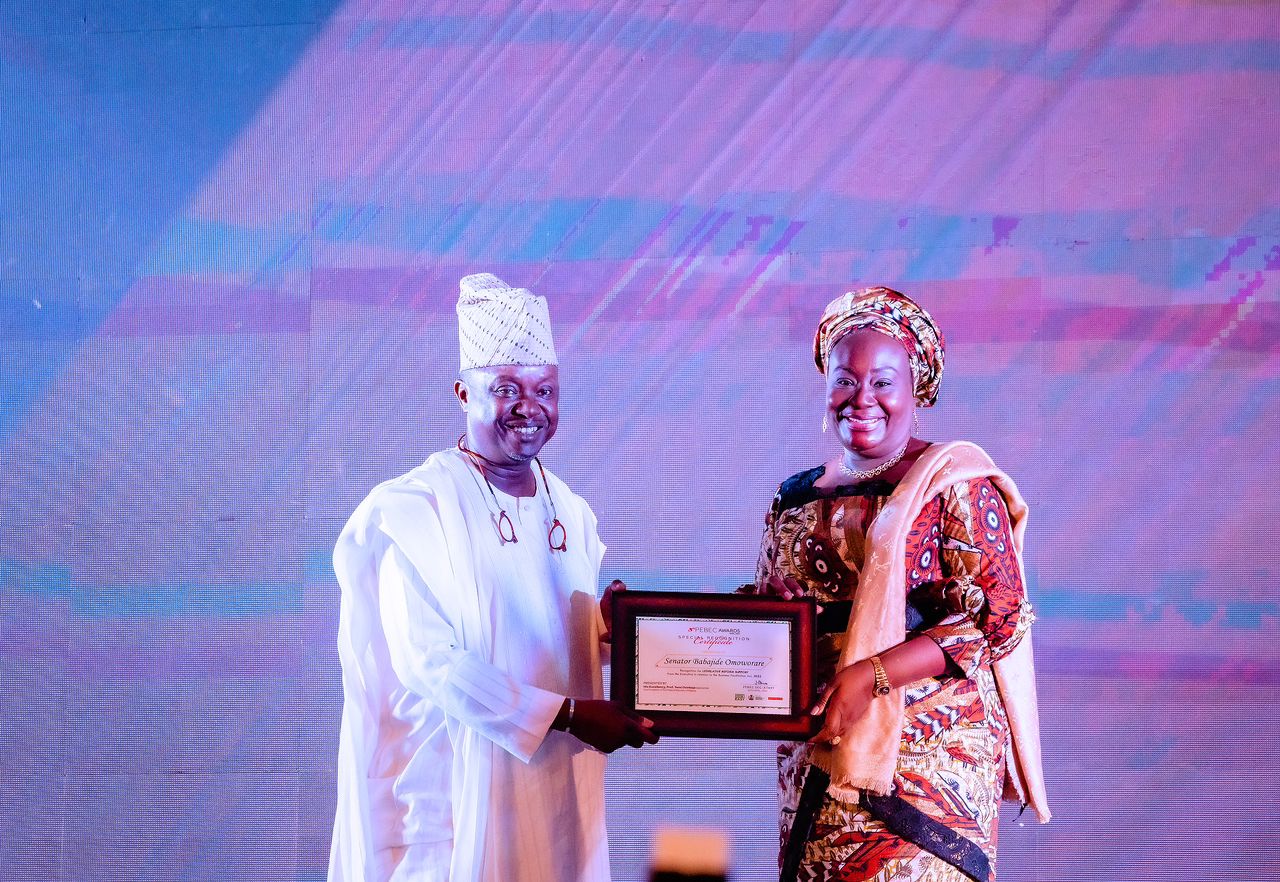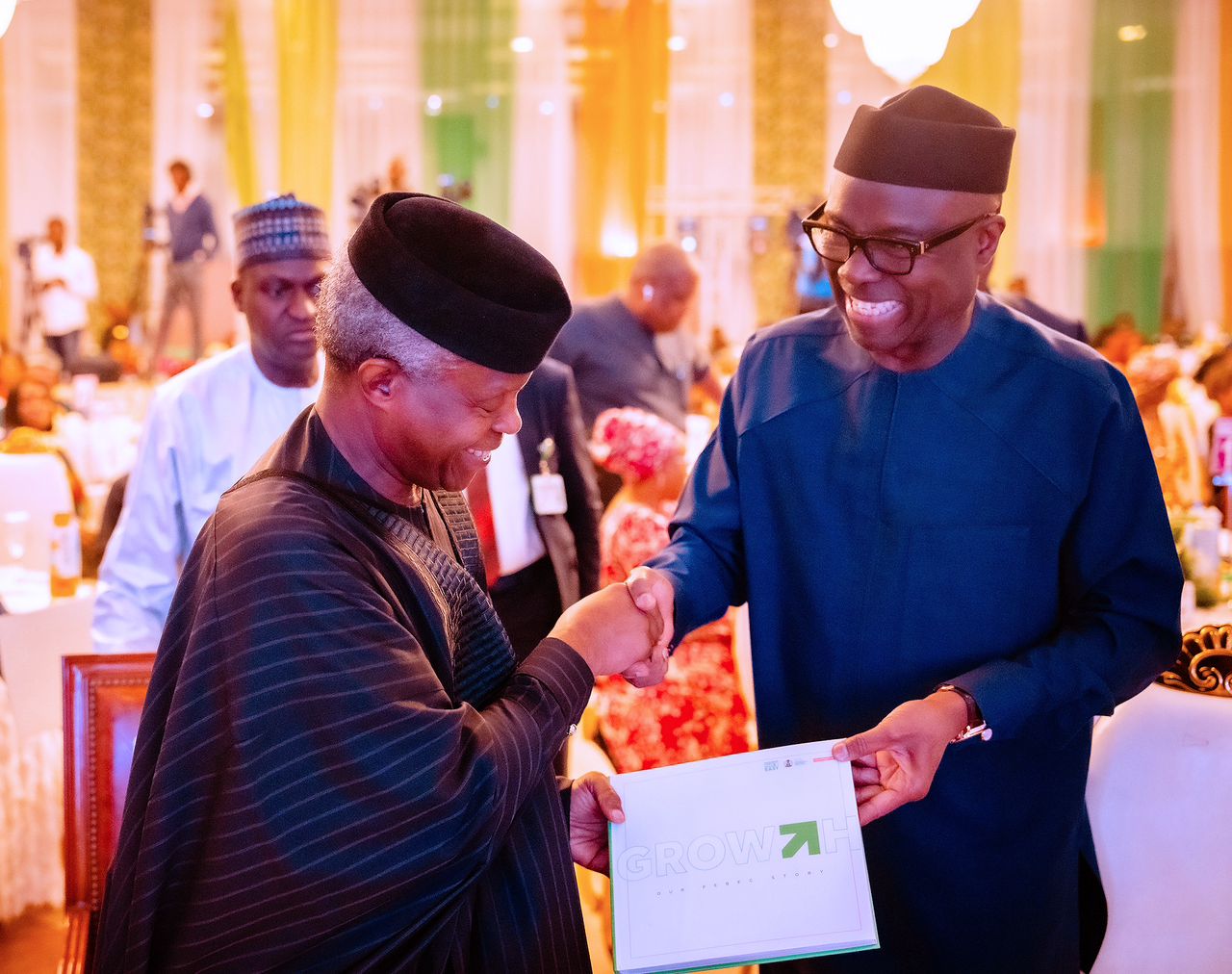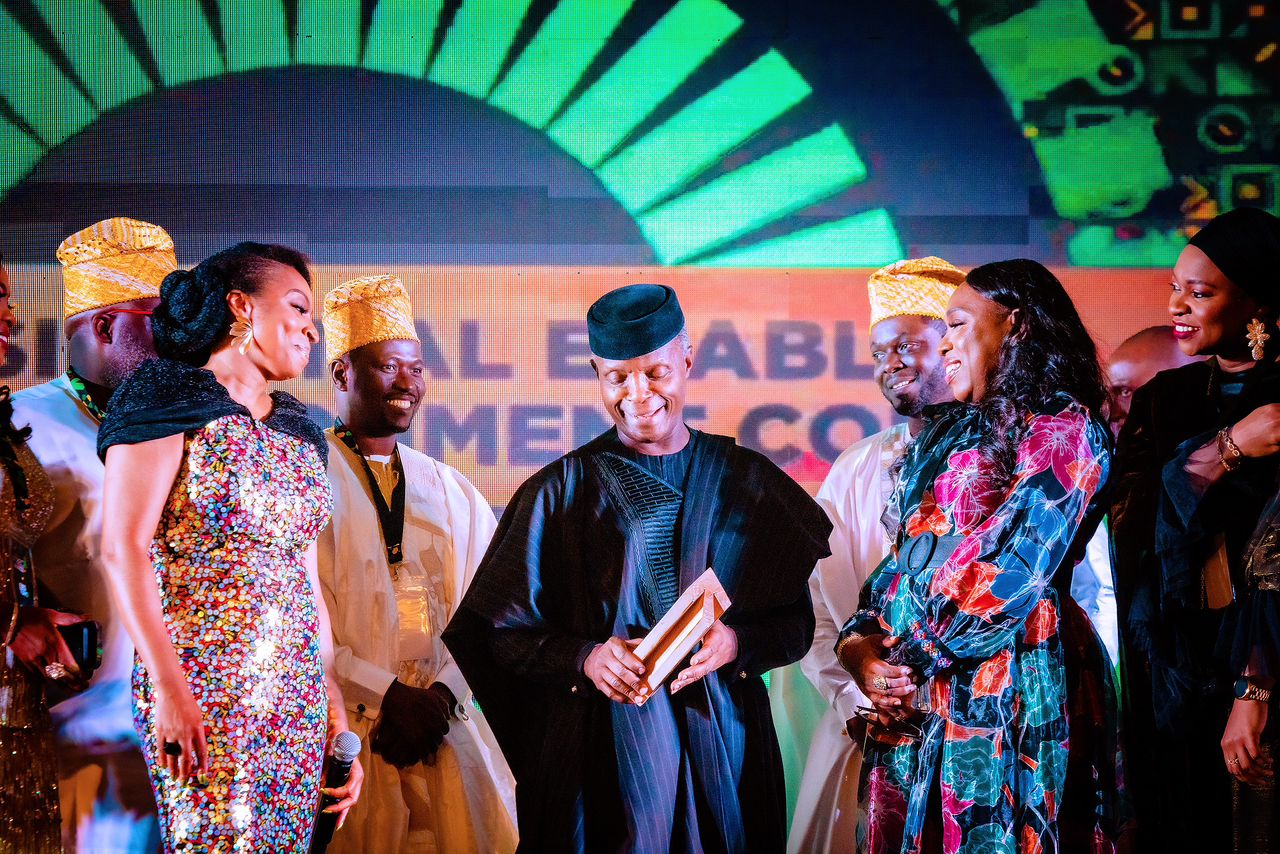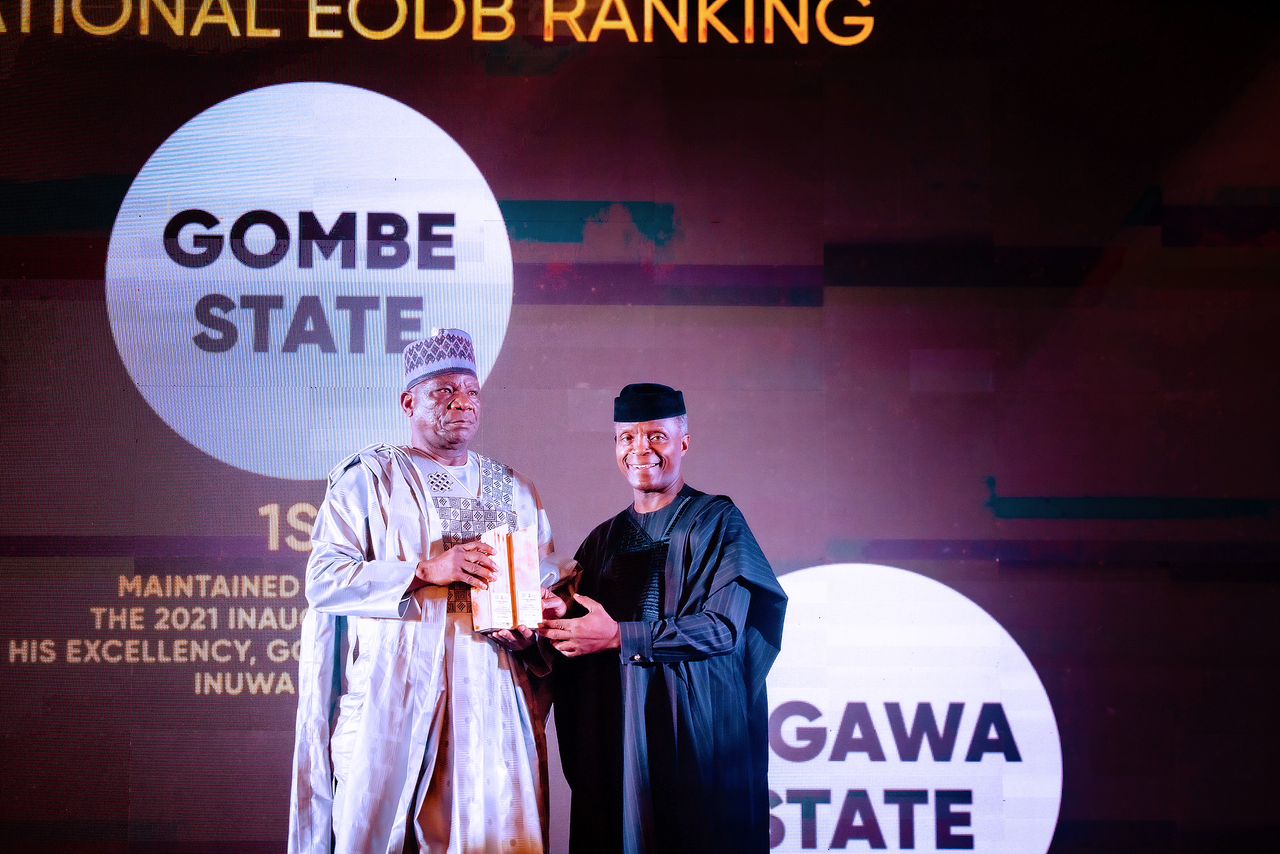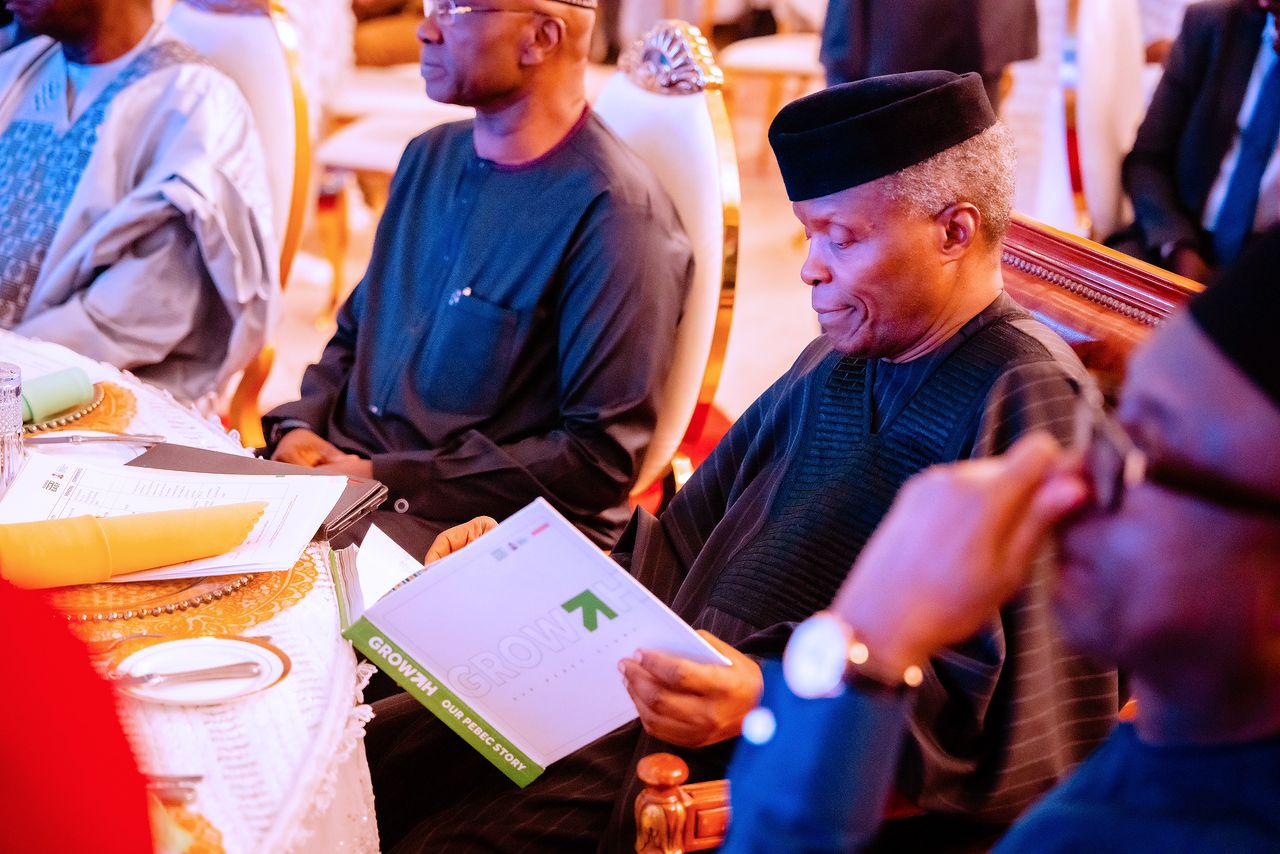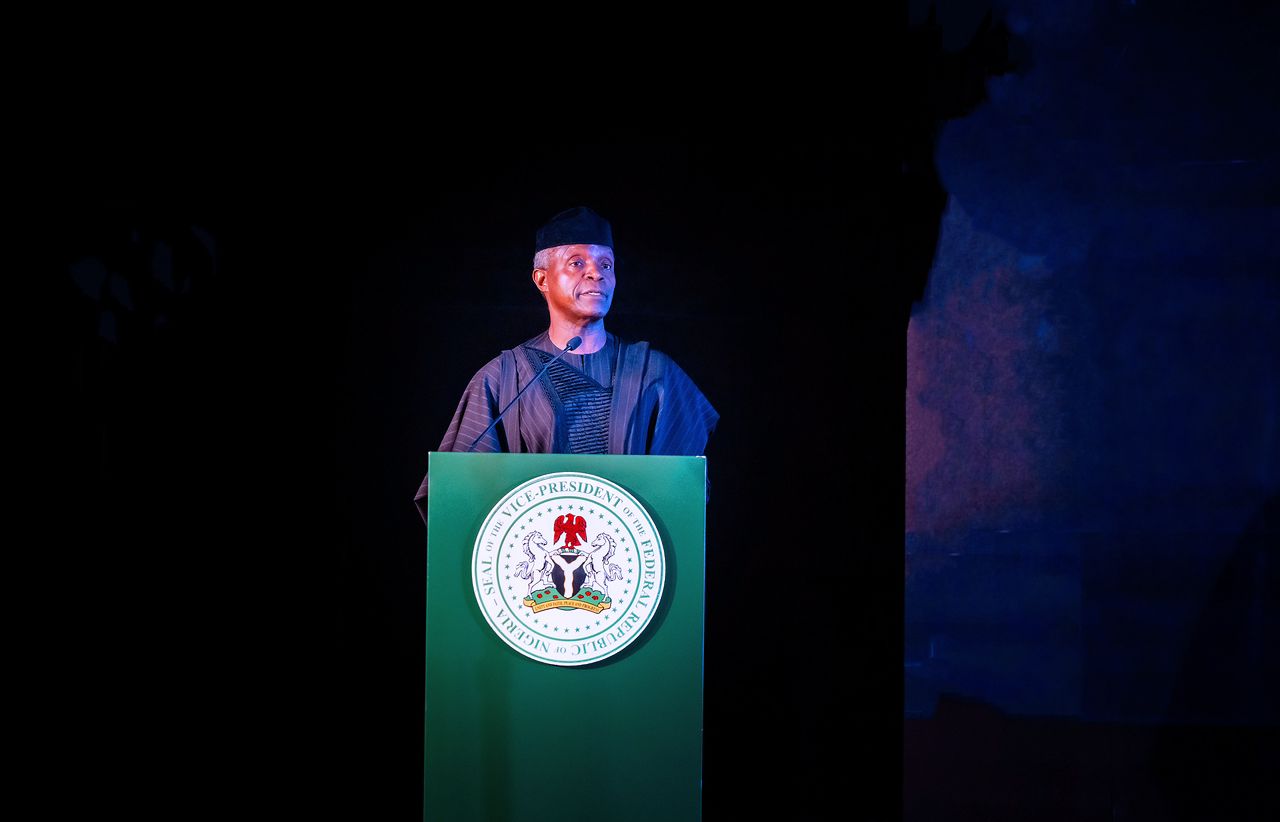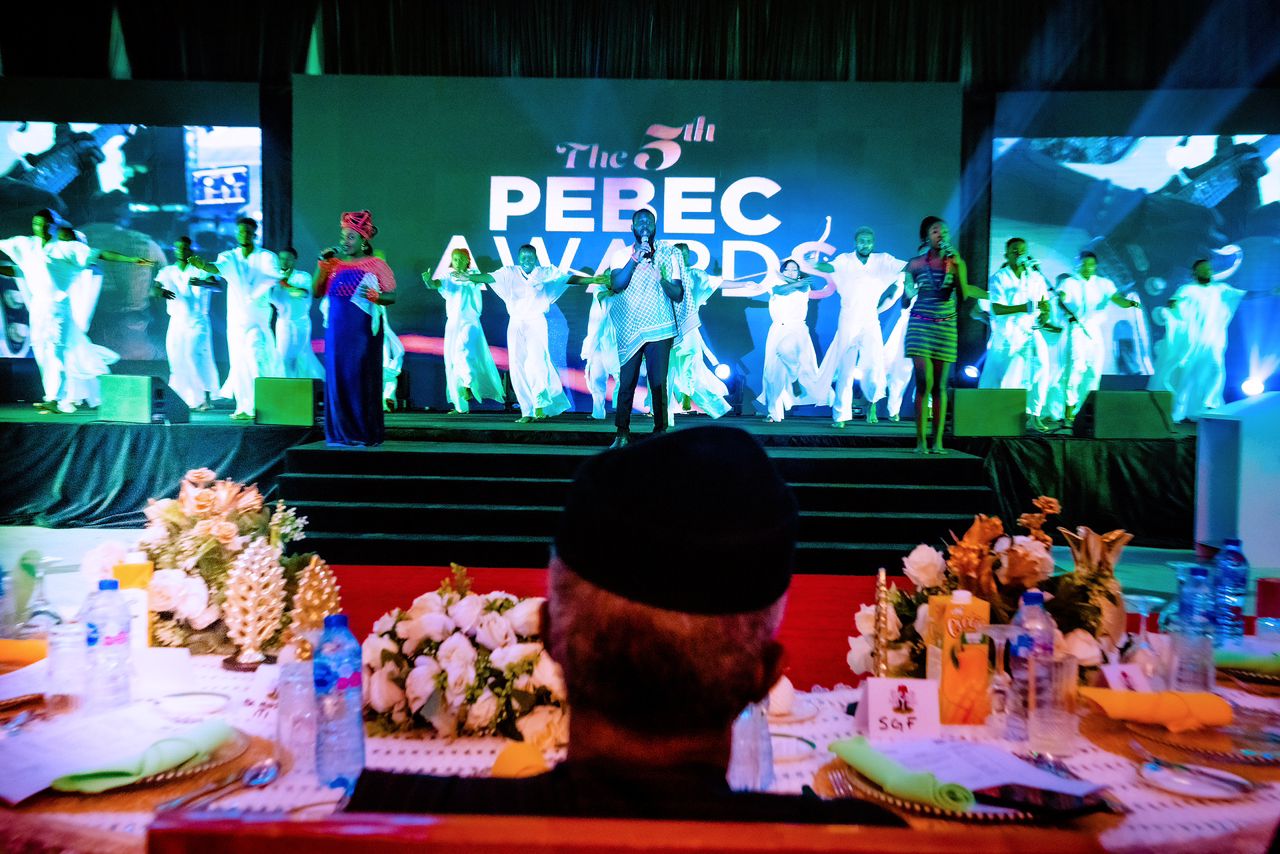5th Presidential Enabling Business Environment Council (PEBEC) Awards Ceremony At The Banquet Hall, Presidential Villa
SPEECH DELIVERED BY HIS EXCELLENCY, PROF. YEMI OSINBAJO, SAN, GCON, VICE PRESIDENT OF THE FEDERAL REPUBLIC OF NIGERIA AT THE 5TH PEBEC AWARDS CEREMONY AT THE BANQUET HALL OF THE PRESIDENTIAL VILLA ON WEDNESDAY, APRIL 26, 2023
PROTOCOLS
In 2016, President Muhammadu Buhari established the Presidential Enabling Business Environment Council (PEBEC). He then mandated us to solve a malignant problem – a challenging business and trading environment for domestic and foreign investors operating in Nigeria. And a difficult business environment always means fewer investors, fewer jobs and less opportunities for all.
The President charged us with positively impacting Nigeria’s business environment by removing the bureaucratic constraints being experienced by a large number of stakeholders. But how were we to do that? How were we going to remove the bottlenecks and obstacles, while delivering the reorientation of regulatory authorities and civil servants who deal with businesses on a daily basis?
How were we to address the significant trust deficit from the private sector towards the government, and correct the pervading negative perceptions, by ensuring that our policies and regulations are enablers to micro, small and medium-sized enterprises (MSMEs)? This was the main challenge that the PEBEC was created to solve.
With the myriad of challenges at the time, we knew it was going to be onerous, yet not insurmountable. This task was essential to the shared prosperity of all. From the beginning, we were clear in our minds that it would be unrealistic to attempt to solve all the problems that we had identified in one fell swoop. An attempt to boil the ocean or eat an elephant whole was never part of the plan. With this in mind, we had to develop a strategy that would allow us to identify and implement bold, pragmatic reforms.
This strategy was to prioritize the frontal pain points of MSMEs and install a systemic framework to resolve them. We did this by soliciting and obtaining the support of other arms and levels of Government with PEBEC representatives from the National Assembly and the Judiciary, as well as all subnational governments through the National Economic Council (NEC).
In 2020, the PEBEC interventions were further expanded to include Local Governments through the Abuja Municipal Area Council (AMAC) which served as a pilot for interventions at the municipal level of government.
Over the last seven years, our visionary team dominated by young Nigerians from both private and public sectors, led by Dr Jumoke Oduwole, have designed and implemented a series of reform initiatives at the federal level with measurable success.
Among other tools and strategies, the team developed a homegrown 60-day accelerator – our National Action Plans (NAPs) – to implement priority reforms by select Ministries, Departments, and Agencies (MDAs) for each annual reform cycle.
The PEBEC Secretariat supports about 15 priority public-facing agencies and currently tracks over 53 MDAs. This is in support of Executive Order 001 on Transparency and Efficiency of public service delivery to the business environment as well as Reportgov.ng, the Council’s feedback mechanism.
I am told that the PEBEC Secretariat team enjoys the collaboration of several reform-minded heads of MDAs and Reform Champions who were instrumental in the development and implementation of these plans. The results have, indeed, been remarkable. The PEBEC, since its inception, has achieved the delivery of over 180 reforms and completed 7 National Action Plans geared towards improving the Nigerian business environment.
These successes are anchored on the collaboration among all stakeholders. And we must all appreciate the efforts of our tireless civil and public servants. What we have seen over the last five years is a pointer to the possibilities for a new Nigeria. The private sector also deserves our heartfelt gratitude and commendation for its commitment and collaboration, especially their contributions in technical support and capacity building. They take much of the credit for the quality output of the EBES, especially through the first three years of the project. But the work of PEBEC is far from done. We are yet to realize our target of becoming one of the top 10 nation’s globally for ease of doing business.
We knew from the onset that attempting to effect some of the most comprehensive procedural and administrative reforms in our history was going to require time, strong political will and insistence on following the plan. We have certainly moved the needle but the task going forward is to consolidate and advance. This would require in the coming years, even greater commitment to following the plan, to departmental accountability for failure to deliver on reforms, and to unwavering excellence.
In conclusion, let me convey the appreciation of President Muhammadu Buhari to members of the Council and to every stakeholder that has made the PEBEC success possible. But we must all remember that success births success. While we must not rest on our oars tonight, let us take a moment to relish our accomplishments so far and leave here tonight renewed and reenergized for the work that lies ahead.
Thank you and God bless you all.


